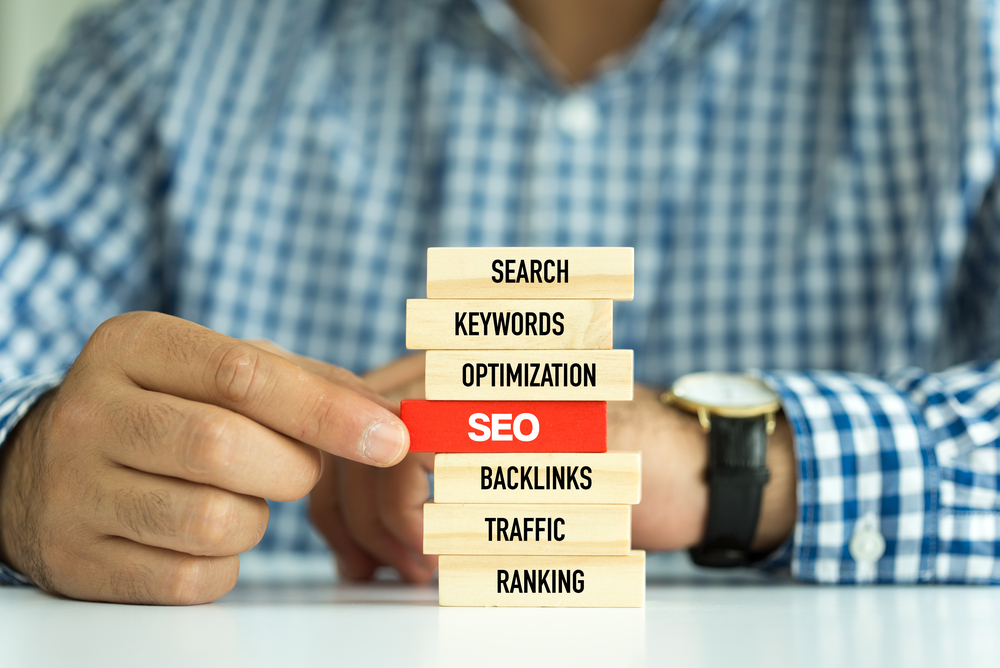
Mastering SEO and Link Building: Insider Tips and Tricks for Success

In the vast digital landscape, where websites are fighting for attention, mastering SEO (Search Engine Optimization) and link building has become crucial for online success. SEO is the practice of optimizing a website to rank higher in search engine results pages (SERPs), while link building focuses on acquiring high-quality backlinks from authoritative sites. Implementing effective SEO strategies and building a strong network of relevant links can significantly boost website visibility and organic traffic. In this article, we will delve into insider tips and tricks to help you master SEO and link building and achieve online success.
Keyword Research: The Foundation of SEO
Keywords play a vital role in SEM/SEO , as they are the primary vehicle for search engines to understand the content and relevance of a web page. Conducting comprehensive keyword research allows you to identify the phrases and terms your target audience is using, effectively optimizing your website. To start your keyword research, use tools like Google Keyword Planner, SEMrush, or Moz's Keyword Explorer.
When choosing keywords, focus on long-tail keywords that are more specific and have less competition. These keywords typically have lower search volume but bring in more targeted traffic. Incorporate keywords naturally into your website's content, including titles, headings, meta descriptions, URL slugs, and alt tags.
Website Optimization: From On-Page to Technical SEO
Once you've identified the keywords, it's time to optimize your website to improve its visibility and search engine rankings. There are two primary aspects of website optimization: on-page SEO and technical SEO (or SEM) .
On-Page SEO
On-page SEO refers to optimizing the content and structure of your website's individual pages.
Content Quality: Create high-quality, relevant, and engaging content that satisfies the search intent of your target audience. Include your target keywords naturally within the content without overstuffing.
Meta Tags: Optimize your meta title and description tags with relevant keywords to attract users to click through to your website from SERPs.
URL Structure: Ensure your URL structure is clean, descriptive, and includes relevant keywords.
Headings and Formatting: Use HTML header tags (H1, H2, H3, etc.) for headings and subheadings to provide a clear structure to your content.
Image Optimization: Compress images to reduce their file size without compromising quality. Use descriptive filenames and alt tags to help search engines understand the image content.
Internal Linking: Link pages within your website to improve website navigation and help search engines discover and index your content more effectively.
Technical SEO
Technical SEO pertains to the non-content elements of your website that impact its visibility and crawling by search engine bots.
Website Speed: Optimize your website's loading speed to enhance user experience. Compress CSS and JavaScript files, enable browser caching, and use a content delivery network (CDN) if necessary.
Mobile-Friendliness: Ensure your website is responsive and mobile-friendly. With the increasing number of users accessing the internet on mobile devices, search engines prioritize mobile-friendly websites in mobile search results.
SSL Certificate: Implement HTTPS encryption on your website by acquiring an SSL certificate. This helps build trust with both users and search engines.
XML Sitemap: Create an XML sitemap that lists all your website's pages, making it easier for search engines to crawl and index your content.
The Power of Link Building
Link building is an essential element of off-page SEO that involves acquiring high-quality inbound links from other websites. These backlinks indicate to search engines that your website is trustworthy, authoritative, and relevant.
Guest Blogging: Contribute guest posts to authoritative websites in your niche. In return, you'll receive a valuable backlink to your website, increasing its visibility and credibility.
Resource Pages: Identify resource pages related to your industry or niche and reach out to them with high-quality content suggestions. If accepted, your website will earn a backlink from the resource page.
Broken Link Building: Find broken links on relevant websites and reach out to the webmasters. Suggest replacing the broken link with your own relevant content, securing a backlink.
Social Media Outreach: Promote your content on social media platforms to increase its visibility. Engaging with industry influencers and thought leaders can potentially lead to backlinks from their websites.
Competitor Backlink Analysis: Analyze your competitors' backlink profiles to identify high-quality backlink opportunities. Tools like Ahrefs, Moz, or SEMrush can assist you in conducting a comprehensive analysis.
Frequently Asked Questions
1. What is the importance of SEO for my website?
SEO is crucial for your website as it helps improve its visibility in search engine results. By optimizing your website with relevant keywords and implementing effective SEO (search engine optimization) strategies, you can attract organic traffic, increase conversions, and achieve online success.
2. How long does it take to see results from SEO efforts?
The time required to see SEO results varies depending on various factors such as the competitiveness of your industry, the quality of your website, and the effectiveness of your SEO/SEM strategies. Generally, it takes several months to start noticing significant improvements in search engine rankings and organic traffic.
3. How can I recover from a Google penalty?
If your website has been hit with a Google penalty, it's essential to identify the reason behind it. Once identified, rectify the issue and submit a reconsideration request to Google. It may take some time, but adhering to Google's guidelines and making the necessary changes can help recover from a penalty.
4. Is link building still important for SEO?
Yes, link building is still a crucial aspect of SEO. While search engines have become more sophisticated in evaluating website relevance, backlinks remain a significant ranking factor. High-quality backlinks from authoritative websites help search engines determine the credibility of your website and improve its search engine rankings.
5. How often should I update my website's content?
Regularly updating your website's content can help improve its search engine rankings and keep your audience engaged. Aim to refresh or add new content at least once a month. Additionally, regularly monitor and update outdated or irrelevant content to maintain a high-quality website.
In conclusion, mastering SEO and link building is essential for online success. By conducting thorough keyword research, optimizing your website, and implementing effective link building strategies, you can enhance your website's visibility, organic traffic, and overall success. Stay consistent, adapt to search engine algorithm changes, and monitor your SEO performance regularly to stay on top of your game.
Other useful resources
- https://www.seoguru24.com/services/
- https://www.seoguru24.com/services/seo/
- https://www.seoguru24.com/website-promotion/